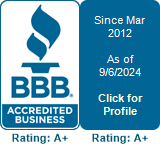Form 4668 for businesses is essentially the same as Form 4549 sent to individuals but with much more serious implications. It usually addresses Employment Tax Issues, which in turn, can lead to a Trust Fund Recovery Penalty. See Letter 1153 & Notice CP15B.
This is more serious because the IRS considers failure to pay the employees withholding as a form of theft. The liability is not dischargeable in bankruptcy. The TaxHelp Prep Steps provide more detailed information. Essentially, if the business doesn't pay the Income and FICA tax withholding for employees then the owners of the business are liable for it.
If you're not liable
If you don't believe you are liable for the tax, you can fight it by appealing within the IRS administrative agency. You can also pay a portion of the tax and sue the USA for a refund.
But, it is important to confront your claims of innocence now. Make sure the IRS Revenue Officer knows about your exculpatory evidence. The most important factor is whether or not you had signatory authority over the business bank account & could have paid the withholding taxes. A bookkeeper, CPA or officer of the company could come under IRS scrutiny for unpaid withholding taxes.
If you are an owner of the business, the IRS will not hear any defense of financial trouble. The fact that you paid other bills & didn't pay the IRS will be held against you, not provide you a defense of inability to pay.
If you are liable
If you agree you are responsible for the tax, it is best to confront the issue now and review all the various options for fighting IRS Collections. We have designed Webinars to help you prepare the necessary documents for the IRS.
At any time, you may contact J. David Hopkins for a confidential, tax-deductible consultation so we may construct an Action Plan for your specific case.







